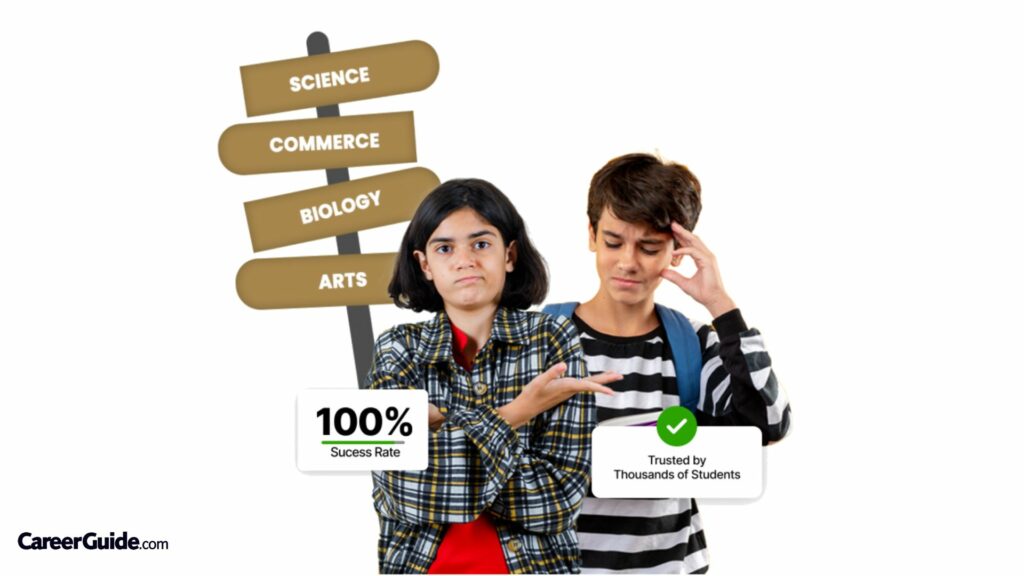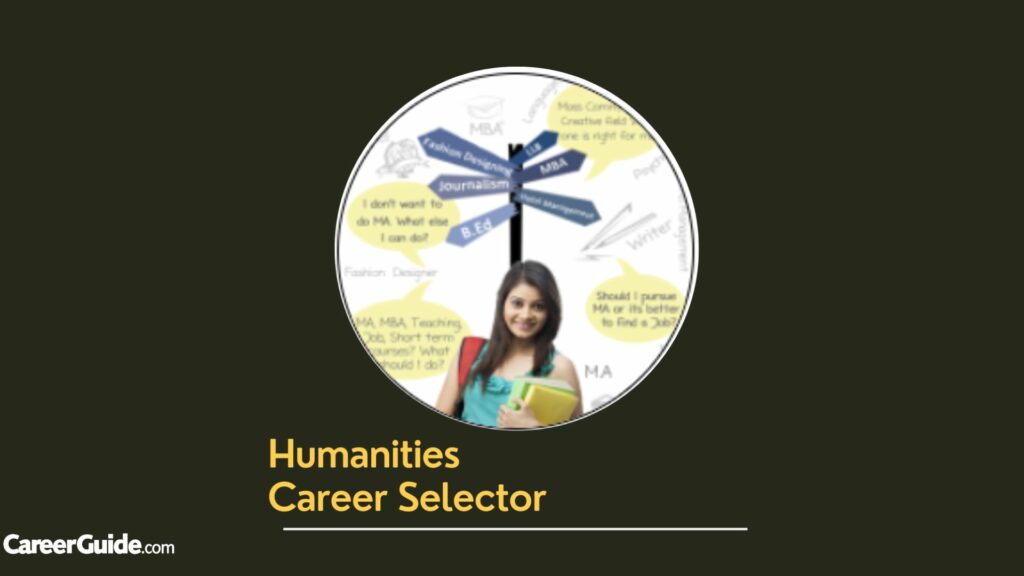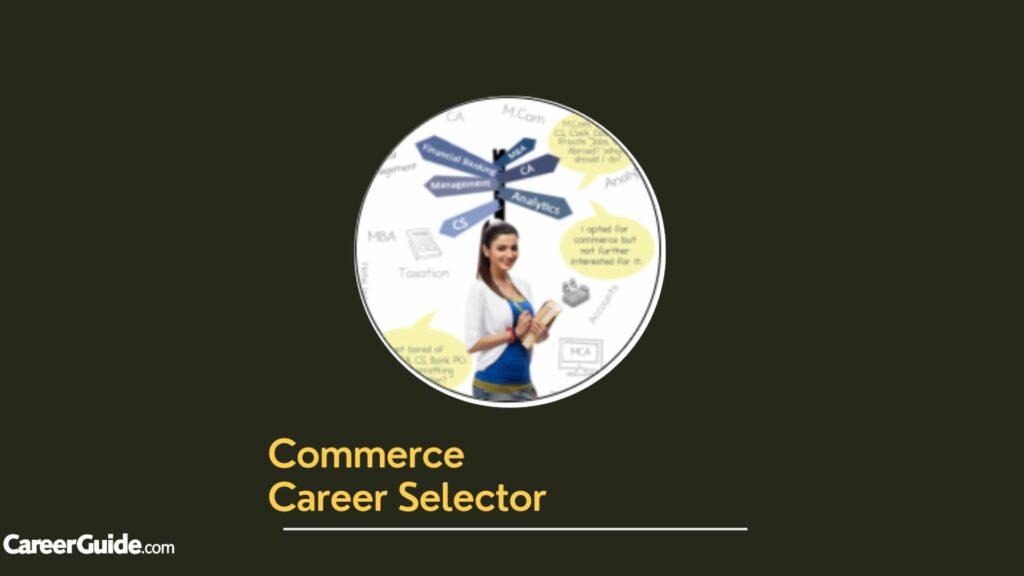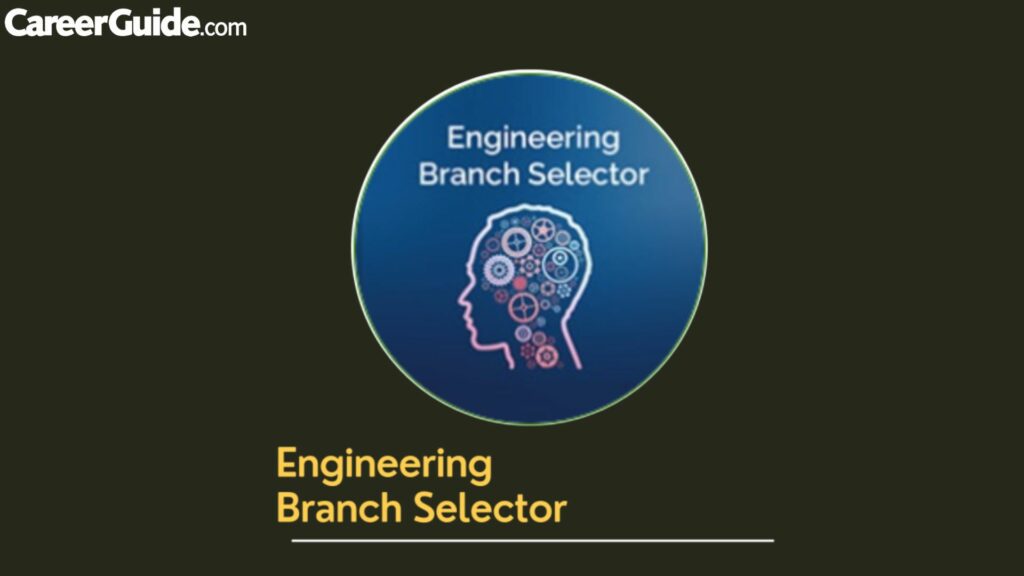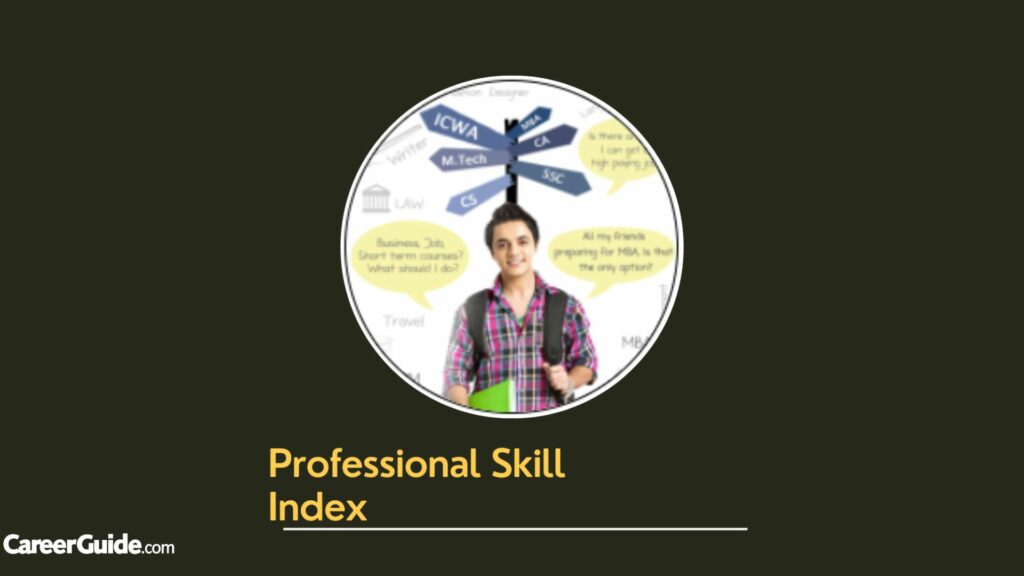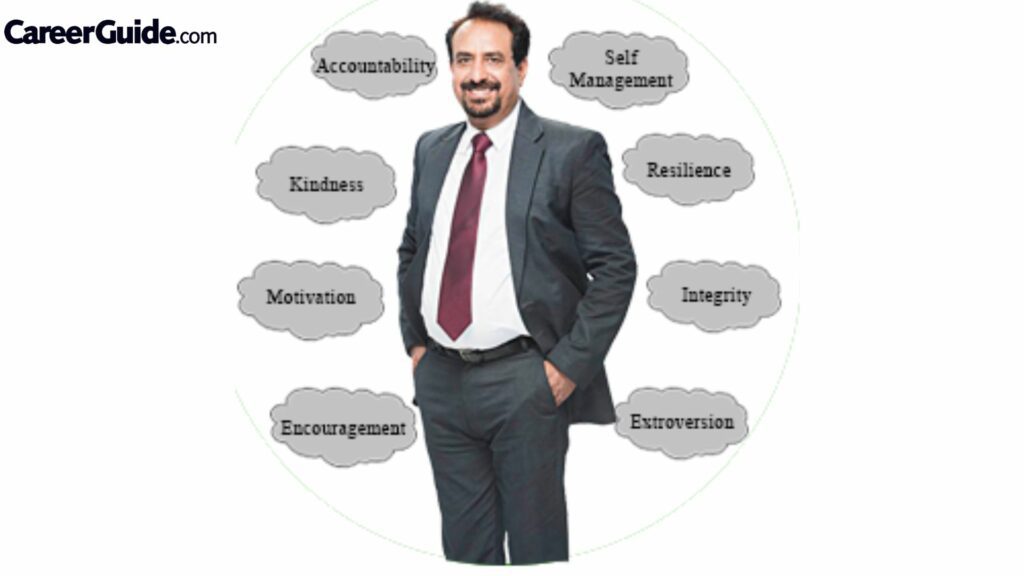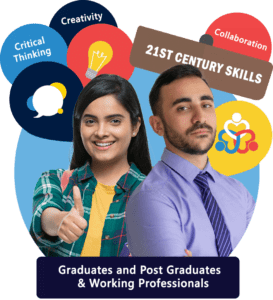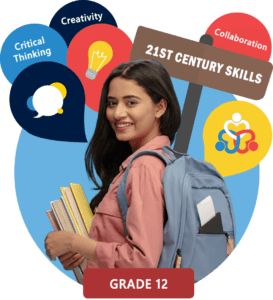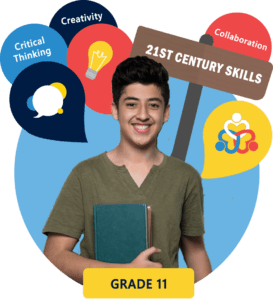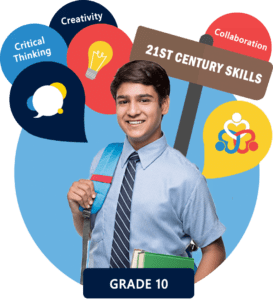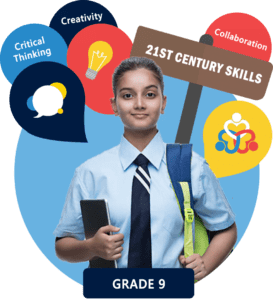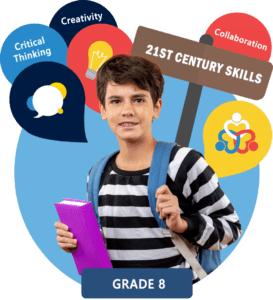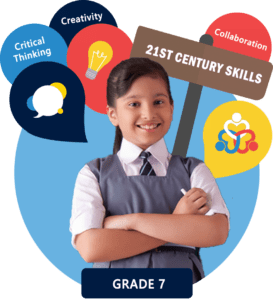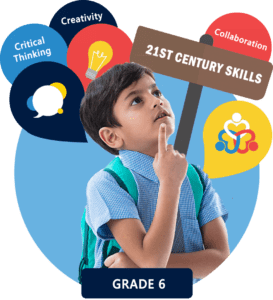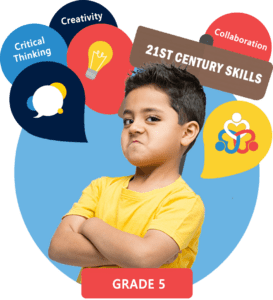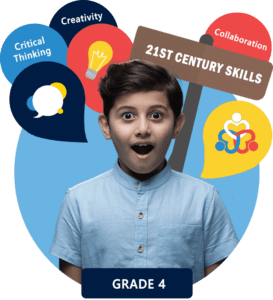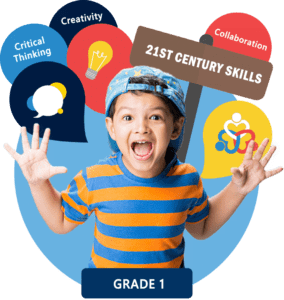By reading the title, you surely came across a question that, what is psychometric tests? Psychometrics is a field of study which is concerned with the theory and technique of psychological measurement; it is defined by the United States National Council on measurement in education that psychometrics refers to psychological measurement. Psychometric Career Assessment. This approach is directly based on the measurement of creativity like abilities, attitudes, and personality traits of an individual. It also studies everyday creativity using various kinds of tests. Psychometrics is also said to be the field of study that is concerned with the theory and technique of psychological measurement. It is primarily concerned with the study of differences between individuals. To know more about what are psychometric tests, you can read the article. This blog is about what is what is psychometric assessment
- Stream Selector Test
- Ideal Career Test
- Humanities Career Selector Test
- Commerce Career Selector Test
- Engineering Branch Selector Test
- Professional Skill Index
- Educator Professional Skills
- Skill Based Career Test
- 21st Century Life Skills & Learning Assessment For Working Professionals
- 21st Century Life Skills & Learning Assessment For class 12th
- 21st Century Life Skills & Learning Assessment For class 11th
- 21st Century Life Skills & Learning Assessment For class 10th
- 21st Century Life Skills & Learning Assessment For class 9th
- 21st Century Life Skills & Learning Assessment For class 8th
- 21st Century Life Skills & Learning Assessment For class 7th
- 21st Century Life Skills & Learning Assessment For class 6th
- 21st Century Life Skills & Learning Assessment For class 5th
- 21st Century Life Skills & Learning Assessment For class 4th
- 21st Century Life Skills & Learning Assessment For class 1 to 3
- FAQ About What is Psychometric Tests?
The what is psychometric assessment typically evaluate a combination of cognitive abilities, such as reasoning and problem-solving, as well as personality traits, such as motivation, teamwork, and communication skills. The results of psychometric tests are often used in conjunction with other forms of assessment, such as interviews, reference checks, and work samples, to make informed decisions about hiring, promotion, or training and development. It is important to note that psychometric tests should be used ethically and responsibly, and that they should not be used to make blanket judgments about a person’s abilities or suitability for a role.
A psychometric test is a kind of activity for an assessment that is taken to evaluate the performance of a candidate and skills like personality traits, knowledge attitude, academic potential, and many more things. There are Aptitude test assessment centres and behavioural tests. what is psychometric assessment are used to measure a variety of skills that are needed to fulfil a particular job or a duty.
Stream Selector Test
The Stream Selector Test is a comprehensive assessment tool designed to assist individuals in identifying their strengths, interests, and aptitudes to make informed decisions about their academic and career paths. This test evaluates various areas such as cognitive abilities, personality traits, and vocational preferences to provide valuable insights into suitable streams and fields of study.
The cognitive abilities section of the test measures an individual’s reasoning, problem-solving, and critical thinking skills. It assesses their capacity to analyze information, make logical deductions, and apply knowledge effectively. This section helps identify areas of cognitive strength, indicating which streams or professions might align with the individual’s mental abilities.
The personality traits assessment examines different aspects of an individual’s character, including their extroversion/introversion, openness to new experiences, conscientiousness, emotional stability, and agreeableness. By understanding their personality profile, individuals can gain insights into work environments that suit their temperament, as well as the types of tasks and interactions that energize them.
Vocational preferences explore an individual’s interests and values related to specific occupations and fields of study. This section helps determine whether someone is inclined towards artistic, scientific, social, or entrepreneurial pursuits. By considering their interests and values, individuals can narrow down their choices and explore careers that align with their passions.
Upon completion of the Stream Selector Test, individuals receive a detailed report outlining their strengths, areas for development, and recommendations for suitable academic or career paths. This report serves as a valuable resource for making informed decisions about educational choices, such as selecting a major in college or choosing a specialized training program.
Ideal Career Test
The Ideal Career Test is a comprehensive assessment tool designed to assist individuals in identifying suitable career paths that align with their interests, skills, values, and personality traits. This test aims to provide valuable insights into the types of occupations and work environments that would be a good fit for an individual, helping them make informed decisions about their career choices.
The test begins by evaluating an individual’s interests and passions. It explores their preferences for various activities, hobbies, and subjects. This assessment helps identify areas that genuinely captivate the individual and can guide them towards career paths that align with their personal interests.
The assessment also evaluates an individual’s skills and aptitudes. It explores their strengths in different areas such as problem-solving, communication, creativity, leadership, and technical abilities. By understanding their skill set, individuals can identify careers that allow them to leverage their natural talents and develop their potential.
Another essential aspect of the Ideal Career Test is the evaluation of an individual’s values and work preferences. It explores their desired work-life balance, preferred work environment, level of independence, and desire for social interaction. Understanding these factors helps individuals find careers that match their values and provide a satisfying work experience.
Personality traits are also a crucial part of the assessment. The test explores an individual’s personality dimensions, such as extroversion/introversion, openness to new experiences, conscientiousness, emotional stability, and agreeableness. By considering their personality profile, individuals can identify careers that align with their temperament and work styles, as well as occupations that provide a conducive environment for personal growth and job satisfaction.
After completing the Ideal Career Test, individuals receive a detailed report outlining their interests, skills, values, personality traits, and recommended career paths. This report serves as a valuable resource for making informed decisions about career choices, setting realistic goals, and pursuing further education or training.
Humanities Career Selector Test
The Humanities Career Selector Test is a specialized assessment tool designed to help individuals explore and identify suitable career paths within the field of humanities. It aims to assess an individual’s interests, skills, values, and personality traits specifically related to the humanities disciplines, providing insights into potential career options within this broad field.
The test begins by evaluating an individual’s interests in various humanities subjects such as literature, history, philosophy, art, and culture. It explores their preferences for engaging with these subjects and helps identify areas of particular fascination. This assessment assists individuals in narrowing down their interests within the humanities and identifying potential career paths that align with their passion.
In addition to interests, the test evaluates an individual’s skills and aptitudes relevant to the humanities. It examines their abilities in critical thinking, research, analysis, writing, communication, and cultural understanding. By understanding their skills within the humanities, individuals can explore careers that allow them to leverage their strengths and contribute meaningfully to the field.
The assessment also takes into account an individual’s values and work preferences within the humanities. It explores their desired work environment, preferred methods of engagement (e.g., research, teaching, creative expression), and potential areas of social impact. Considering these factors helps individuals find careers within the humanities that align with their values and provide a sense of purpose.
Personality traits are another important aspect of the Humanities Career Selector Test. It assesses dimensions such as intellectual curiosity, creativity, empathy, and a passion for lifelong learning. By understanding their personality profile, individuals can identify humanities careers that align with their natural inclinations and work styles, fostering personal fulfillment and professional growth.
Upon completion of the Humanities Career Selector Test, individuals receive a comprehensive report outlining their interests, skills, values, personality traits, and recommended career paths within the humanities. This report serves as a valuable resource for making informed decisions about academic pursuits, such as choosing a humanities major or exploring specialized fields of study.
We may learn about a candidate’s preferred method of communication, how they handle setbacks, and how they would manage a team by assessing and understanding their behavioral style. This kind of knowledge is critical for finding areas for improvement, increasing engagement, and determining whether or not a person is a suitable cultural fit for a team or organization. Dominance, Influence, Stability, and Compliance are used to determine a person’s anxieties, motivators, values, and behavioral style. This also helps us to understand what are the different types of psychometric tests.
Candidates must choose two trait descriptors from a block of four, one ‘most like’ and one ‘least like’, to complete the PPA. This process is repeated 24 times, yielding 48 options out of a total of 96. Rather than comparing scores from a comparison group, an individual’s reaction patterns are compared to themselves.
Commerce Career Selector Test
The Commerce Career Selector Test is a specialized assessment tool designed to assist individuals in exploring and identifying suitable career paths within the field of commerce. This test aims to evaluate an individual’s interests, skills, values, and personality traits specifically related to the commerce disciplines, providing valuable insights into potential career options within this diverse field.
The test begins by assessing an individual’s interests in various commerce subjects, such as accounting, finance, marketing, economics, and business management. It explores their preferences for engaging with these subjects and helps identify areas of particular interest. This assessment assists individuals in narrowing down their interests within the commerce field and identifying potential career paths that align with their passion.
In addition to interests, the test evaluates an individual’s skills and aptitudes relevant to commerce. It examines their abilities in quantitative analysis, financial management, problem-solving, communication, leadership, and entrepreneurship. By understanding their skills within commerce, individuals can explore careers that leverage their strengths and provide opportunities for professional growth.
The assessment also takes into account an individual’s values and work preferences within commerce. It explores their desired work environment, preferred levels of responsibility, potential areas of specialization, and desired work-life balance. Considering these factors helps individuals find commerce careers that align with their values, provide job satisfaction, and offer suitable work dynamics.
Personality traits are another important aspect of the Commerce Career Selector Test. It assesses dimensions such as analytical thinking, attention to detail, risk tolerance, adaptability, and interpersonal skills. By understanding their personality profile, individuals can identify commerce careers that align with their natural inclinations and work styles, promoting personal fulfillment and career success.
Upon completion of the Commerce Career Selector Test, individuals receive a comprehensive report outlining their interests, skills, values, personality traits, and recommended career paths within the commerce field. This report serves as a valuable resource for making informed decisions about academic pursuits, such as choosing a commerce-related major or exploring specialized areas within the field.
Engineering Branch Selector Test
The Engineering Branch Selector Test is a specialized assessment tool designed to assist individuals in exploring and identifying suitable branches or disciplines within the field of engineering. This test aims to evaluate an individual’s interests, skills, values, and personality traits specifically related to the various branches of engineering, providing valuable insights into potential career paths within this diverse and rapidly evolving field.
The test begins by assessing an individual’s interests in different areas of engineering, such as mechanical, electrical, civil, chemical, computer, or aerospace engineering. It explores their preferences for working with machines, structures, electronics, software, or specific applications. This assessment assists individuals in narrowing down their interests within engineering and identifying potential branches that align with their passion.
In addition to interests, the test evaluates an individual’s skills and aptitudes relevant to engineering. It examines their abilities in problem-solving, mathematical analysis, technical knowledge, design thinking, programming, or laboratory work. By understanding their skills within engineering, individuals can explore branches that allow them to leverage their strengths and contribute meaningfully to their chosen field.
The assessment also takes into account an individual’s values and work preferences within engineering. It explores their desired work environment, preferred level of hands-on work, teamwork dynamics, or potential areas of societal impact. Considering these factors helps individuals find engineering branches that align with their values, provide job satisfaction, and offer opportunities for professional growth.
Personality traits are another crucial aspect of the Engineering Branch Selector Test. It assesses dimensions such as logical thinking, attention to detail, creativity, problem-solving approach, and collaborative skills. By understanding their personality profile, individuals can identify engineering branches that align with their natural inclinations and work styles, fostering personal fulfillment and career success.
Upon completion of the Engineering Branch Selector Test, individuals receive a comprehensive report outlining their interests, skills, values, personality traits, and recommended engineering branches. This report serves as a valuable resource for making informed decisions about academic pursuits, such as choosing an engineering major or exploring specialized fields within the discipline.
Professional Skill Index
The Professional Skill Index (PSI) is a comprehensive assessment tool designed to evaluate and measure an individual’s professional skills across various dimensions. It provides a comprehensive overview of an individual’s strengths, areas for improvement, and potential areas of professional growth. The PSI is a valuable resource for individuals seeking to understand and enhance their skillset in order to excel in their careers.
The PSI evaluates a wide range of professional skills that are highly valued in the workplace. These skills may include communication, problem-solving, teamwork, leadership, adaptability, time management, critical thinking, creativity, emotional intelligence, and technological proficiency, among others. By assessing these skills, the PSI provides individuals with a clear understanding of their current skill level in each area.
The assessment process involves a combination of self-assessment and objective evaluation. Individuals may provide self-ratings for each skill, reflecting their perception of their own abilities. Additionally, feedback from peers, supervisors, or mentors may be collected to provide a more comprehensive and balanced assessment of an individual’s skills.
The PSI provides individuals with a detailed report that outlines their skill strengths and areas for improvement. This report may include suggestions for development opportunities, such as training programs, workshops, or mentorship. The PSI helps individuals prioritize their skill enhancement efforts and create a plan for professional growth.
Employers and organizations also find the PSI valuable for talent development and succession planning. By assessing the professional skills of their employees, employers can identify skill gaps within their workforce and design targeted training programs or reassign individuals to roles that align better with their strengths. The PSI enables organizations to optimize their talent pool and foster a culture of continuous learning and development.
Educator Professional Skills
Educator professional skills encompass a wide range of competencies and abilities that are crucial for effective teaching and student engagement. These skills go beyond subject matter expertise and play a vital role in creating a positive and impactful learning environment. Here is an overview of some key professional skills that educators should possess:
- Pedagogical Expertise: Educators should have a deep understanding of teaching methods, curriculum development, and assessment strategies. They should be skilled in designing engaging and effective lesson plans that cater to diverse learning styles and abilities.
- Communication Skills: Clear and effective communication is essential for educators to convey information, facilitate discussions, and provide feedback. Strong verbal and written communication skills help educators engage with students, parents, and colleagues effectively.
- Classroom Management: Educators need to create a well-managed and organized classroom environment that promotes discipline, respect, and a positive learning atmosphere. Effective classroom management skills enable educators to establish routines, manage student behavior, and address conflicts constructively.
- Differentiation: Educators should be adept at differentiating instruction to meet the individual needs of students. This involves adapting teaching methods, materials, and assessments to accommodate diverse learning styles, abilities, and backgrounds.
- Technology Integration: Proficiency in leveraging technology tools and resources is becoming increasingly important in education. Educators should be skilled in integrating technology into their teaching practices to enhance student learning, engagement, and digital literacy.
- Collaboration and Teamwork: Educators often work collaboratively with colleagues, administrators, and other stakeholders. Strong collaboration skills enable educators to participate in professional learning communities, contribute to team efforts, and effectively communicate with colleagues and parents.
- Cultural Competence: In diverse classrooms, educators need to exhibit cultural competence by understanding and valuing the backgrounds, experiences, and perspectives of their students. This skill helps create an inclusive and respectful learning environment that celebrates diversity.
- Continuous Learning: Educators should be committed to lifelong learning and professional development. They should engage in ongoing professional growth, stay updated with research and best practices in education, and seek opportunities for self-improvement.
Skill Based Career Test
A skill-based career test is a specialized assessment tool designed to help individuals identify career paths that align with their unique skills and abilities. This type of test focuses on evaluating an individual’s specific skill set, providing valuable insights into potential career options where those skills can be effectively applied.
The test begins by assessing a wide range of skills that are relevant to various professions and industries. These may include technical skills, such as programming, data analysis, or engineering, as well as soft skills, such as communication, problem-solving, leadership, or creativity. The assessment provides individuals with a comprehensive understanding of their skill strengths and areas for further development.
Based on the results of the assessment, the test generates a detailed report outlining potential career paths that match the individual’s skill profile. The report may provide information on industries, job roles, and specific occupations that require or value the assessed skills. This guidance helps individuals explore career options that are aligned with their natural aptitudes, maximizing their potential for success and job satisfaction.
Furthermore, the test may also provide recommendations for skill development or training opportunities to enhance existing skills or acquire new ones. This allows individuals to proactively pursue professional development activities that align with their career goals and enhance their marketability in their chosen field.
The skill-based career test is a valuable tool for individuals at various stages of their career journey. It can assist high school students in selecting educational paths that align with their skills, guide college students in choosing a major or specialization, and aid professionals in exploring career transitions or advancement opportunities.
It is important to note that the skill-based career test should be considered as one component of the career exploration process. It should be used in conjunction with personal introspection, research, and guidance from career counselors or mentors. Additionally, the test results should be evaluated alongside individual interests, values, and long-term career goals to make well-informed decisions.
21st Century Life Skills & Learning
Assessment For Working Professionals
Assessing 21st-century life skills and learning for working professionals is essential to ensure their continued growth, success, and adaptability in the dynamic and evolving professional landscape. Here’s an explanation of the assessment of life skills and learning for working professionals:
- Self-Assessment: Working professionals can engage in self-assessment to evaluate what is psychometric their own skills and areas for improvement. They can reflect on their communication skills, critical thinking abilities, problem-solving approaches, adaptability, teamwork, leadership, and digital literacy. Self-assessment tools, such as competency frameworks or self-reflection questionnaires, can help professionals identify their strengths and areas for development.
- Performance Reviews: Performance reviews conducted by employers provide valuable feedback on professionals’ performance, including their application of life skills and learning. These reviews often assess competencies such as effective communication, time management, collaboration, leadership, and the ability to handle challenging situations. Feedback from performance reviews helps professionals understand their strengths and areas for growth in relation to their job requirements.
- Professional Development Programs: Employers may offer professional development programs that include assessments to enhance employees’ life skills and learning. These programs can include workshops, training sessions, online courses, or coaching sessions tailored to improve specific competencies. Assessments within these programs allow professionals to gauge their progress and provide benchmarks for their development.
- 360-Degree Feedback: 360-degree feedback involves gathering input from multiple sources, including supervisors, peers, and subordinates, to assess an individual’s life skills and learning. This feedback what is psychometric provides a comprehensive view of professionals’ strengths and areas for improvement, helping them understand how their skills are perceived by others and guiding their growth.
- Project Evaluations: Professionals often engage in projects or assignments within their work environment. Evaluating the outcomes of these projects can provide insights into professionals’ abilities to apply critical thinking, problem-solving, and collaboration skills. Feedback from project evaluations helps professionals understand their performance and identify opportunities for improvement.
- Continuous Learning and Development: Assessments for working professionals should emphasize continuous learning and development. Professionals can engage in ongoing learning activities, such as attending conferences, participating in webinars, or pursuing advanced certifications, and assess their progress through quizzes, assessments, or practical assignments.
21st Century Life Skills & Learning
Assessment For class 12th
In the 21st century, life skills and learning have become increasingly important for students, including those in class 12th. These skills go beyond traditional academic knowledge and play a crucial role in preparing students for success in their personal, educational, and professional lives. Assessment of these skills helps what is psychometric gauge students’ proficiency and development in areas that are essential for their overall growth. Here is a brief explanation of the assessment of 21st-century life skills and learning for class 12th:
Assessment of life skills: Life skills encompass a range of abilities that enable individuals to navigate various aspects of life effectively. Class 12th students can be assessed on skills such as critical thinking, problem-solving, communication, collaboration, creativity, adaptability, leadership, and emotional intelligence. Assessments may involve tasks, projects, presentations, case studies, and real-world simulations that allow students to demonstrate their application of these skills.
Assessment of learning: Besides academic knowledge, assessing learning in class 12th involves evaluating students’ ability to acquire, analyze, and apply information. This assessment can be conducted through written exams, practical assessments, research projects, and presentations. It focuses on students’ understanding of concepts, their ability to synthesize information, and their proficiency in relevant subject-specific skills.
21st Century Life Skills & Learning
Assessment For class 11th
Assessing 21st-century life skills and learning for class 11th students is crucial to equip them with the necessary competencies for personal, educational, and future professional success. Here’s an explanation of the assessment of life skills and learning for class 11th:
- Holistic Assessment: Assessments should go beyond traditional exams and focus on evaluating a broad range of life skills. This can include critical thinking, problem-solving, communication, collaboration, creativity, digital literacy, and cultural awareness. Assessments should be designed to measure students’ abilities to apply these skills in real-life situations.
- Project-Based Assessments: Projects provide an effective way to assess students’ application of life skills and learning. Assignments that require research, analysis, problem-solving, teamwork, and presentation skills can assess students’ abilities to think critically, communicate effectively, and collaborate with others. Projects can be designed to address real-world issues or simulate workplace scenarios.
- Presentation Assessments: Presentations allow students to showcase their communication and public speaking skills. Assessing students’ ability to organize information, deliver clear and engaging presentations, and respond to questions can provide insights into their communication, confidence, and presentation skills.
- Portfolio Assessments: Portfolios can be used to assess students’ progress and development of various life skills. Students can curate a collection of their work, including essays, projects, artwork, or creative pieces, to demonstrate their growth and mastery of skills throughout the academic year. Portfolios provide a comprehensive view of students’ achievements and progress.
- Group Discussions and Debates: Assessing students’ participation in group discussions and debates can evaluate their ability to articulate ideas, listen actively, engage in constructive dialogue, and respect diverse perspectives. These assessments can measure students’ communication, critical thinking, and teamwork skills.
- Self-Assessment and Reflection: Encouraging students to engage in self-assessment and reflection activities can enhance their metacognitive skills. Students can evaluate their own strengths, areas for improvement, and set goals for further development. Self-assessment tools and reflective journals can support this process. what is psychometric
21st Century Life Skills & Learning
Assessment For class 10th
Assessing 21st-century life skills and learning for class 10th students is essential to equip them with the necessary competencies for their personal growth and future success. Here’s an explanation of the assessment of life skills and learning for class 10th:
- Critical Thinking Assessments: Critical thinking assessments can evaluate students’ ability to analyze information, make logical connections, and draw reasoned conclusions. Assignments and questions that require students to evaluate evidence, solve problems, and think creatively can assess their critical thinking skills.
- Communication Assessments: Assessments should focus on students’ communication skills, including verbal and written communication. Presentations, speeches, debates, and written assignments can assess students’ ability to express their ideas clearly, use appropriate language, and communicate effectively with others.
- Collaboration and Teamwork Assessments: Group projects and activities can assess students’ ability to collaborate with peers, work as a team, and contribute effectively to achieve shared goals. Assessments can evaluate students’ communication within a team, ability to listen to others’ perspectives, and their contributions to the group effort.
- Problem-Solving Assessments: Assignments and tasks that present real-world problems or scenarios can assess students’ problem-solving skills. Students can be evaluated based on their ability to identify and analyze problems, propose solutions, and evaluate the effectiveness of their chosen approach.
- Digital Literacy Assessments: Assessments should include evaluating students’ digital literacy skills, such as their ability to navigate digital tools and platforms, critically evaluate online information, and use technology for research and communication purposes. Assignments that require students to create digital presentations, conduct online research, or use multimedia tools can assess their digital literacy.
- Self-Reflection and Metacognitive Assessments: Encouraging students to engage in self-reflection and metacognitive activities can help them develop a deeper understanding of their own learning processes and strategies. Assessments can include self-assessment questionnaires, reflective journals, or portfolio assessments where students evaluate their own progress and set goals for improvement. what is psychometric
21st Century Life Skills & Learning
Assessment For class 9th
Assessing 21st-century life skills and learning for class 9th students is crucial to lay a strong foundation for their personal growth and future success. Here’s an explanation of the assessment of life skills and learning for class 9th:
- Critical Thinking Assessments: Assessments can focus on students’ critical thinking abilities by presenting them with problems or scenarios that require analysis, evaluation, and logical reasoning. Questions that prompt students to think critically, make connections, and provide evidence-based answers can assess their critical thinking skills.
- Communication Assessments: Assessing communication skills is vital at this stage. Assignments that require students to present ideas orally, engage in group discussions, write essays, or participate in debates can assess their ability to express themselves clearly, listen actively, and communicate effectively with others.
- Collaboration and Teamwork Assessments: Group projects or assignments that necessitate collaboration and teamwork can assess students’ ability to work effectively in a team setting. Assessments can evaluate their contributions to the group, communication with peers, and the ability to cooperate and compromise.
- Problem-Solving Assessments: Problem-solving assessments can evaluate students’ ability to identify and analyze problems, explore multiple solutions, and select the most effective approach. Assessments can involve real-life scenarios or hypothetical situations that require students to apply their problem-solving skills.
- Digital Literacy Assessments: As digital literacy is increasingly important in the 21st century, assessments should include evaluating students’ proficiency in using digital tools and resources. Assignments that require students to conduct online research, create multimedia presentations, or demonstrate their understanding of online safety and responsible digital behavior can assess their digital literacy skills.
- Self-Assessment and Reflection: Encouraging students to engage in self-assessment and reflection activities promotes metacognitive skills. Assessments can include self-evaluation questionnaires, reflective journals, or portfolio assessments where students analyze their own learning progress, strengths, and areas for improvement. what is psychometric
21st Century Life Skills & Learning
Assessment For class 8th
Assessing 21st-century life skills and learning for class 8th students is crucial to foster their personal growth and equip them with essential competencies for future success. Here’s an explanation of the assessment of life skills and learning for class 8th:
- Critical Thinking Assessments: Assessments can focus on students’ critical thinking abilities by providing them with problems or scenarios that require analysis, evaluation, and logical reasoning. Questions that prompt students to think critically, make connections, and provide well-reasoned answers can assess their critical thinking skills.
- Communication Assessments: Assessing communication skills is important at this stage. Assignments that involve presenting ideas orally, writing essays or stories, engaging in group discussions, or participating in debates can assess students’ ability to express themselves clearly, listen actively, and communicate effectively with others.
- Collaboration and Teamwork Assessments: Group projects or assignments that promote collaboration and teamwork can assess students’ ability to work together effectively. Assessments can evaluate their contributions to the group, communication with peers, and their ability to cooperate, share responsibilities, and respect diverse perspectives.
- Problem-Solving Assessments: Assessments that require students to solve problems, find innovative solutions, and demonstrate their understanding of different problem-solving approaches can assess their problem-solving skills. Students can be evaluated based on their ability to identify problems, analyze information, and propose logical solutions.
- Information Literacy Assessments: Assessments should include evaluating students’ information literacy skills. Assignments that involve conducting research, evaluating sources, and presenting findings can assess their ability to navigate and critically analyze information from various sources.
- Self-Assessment and Reflection: Encouraging students to engage in self-assessment and reflection activities supports their metacognitive skills. Assessments can include self-evaluation questionnaires, reflective journals, or portfolio assessments where students evaluate their own progress, strengths, and areas for improvement.
21st Century Life Skills & Learning
Assessment For class 7th
Assessing 21st-century life skills and learning for class 7th students is essential to nurture their personal growth and equip them with vital competencies for their future development. Here’s an explanation of the assessment of life skills and learning for class 7th:
- Critical Thinking Assessments: Assessments can focus on developing students’ critical thinking abilities by providing them with puzzles, brain teasers, or thought-provoking questions that require analysis, reasoning, and problem-solving. Assessments can evaluate their ability to think critically, make connections, and provide logical explanations.
- Communication Assessments: Assessing communication skills is crucial at this stage. Assignments that involve giving presentations, participating in class discussions, writing short essays or stories, or engaging in role plays can assess students’ ability to express themselves clearly, listen actively, and communicate effectively.
- Collaboration Assessments: Assessments that promote collaboration among students can evaluate their ability to work together as a team. Group projects or activities that require students to plan, coordinate, and complete tasks collectively can assess their teamwork, cooperation, and communication skills.
- Creative Thinking Assessments: Assessments can encourage students’ creative thinking by providing them with open-ended questions or assignments that require them to generate innovative ideas, find alternative solutions, or create original artwork. Assessments can evaluate their ability to think creatively and express their unique perspectives.
- Information Retrieval Assessments: Assessments should include evaluating students’ ability to retrieve information from various sources. Assignments that involve conducting simple research, using age-appropriate reference materials, or navigating online resources can assess their information retrieval skills.
- Self-Assessment and Reflection: Encouraging students to engage in self-assessment and reflection activities can enhance their metacognitive skills. Assessments can include self-evaluation checklists, reflection journals, or portfolio assessments where students assess their own progress, strengths, and areas for improvement.
21st Century Life Skills & Learning
Assessment For class 6th
Assessing 21st-century life skills and learning for class 6th students is crucial to foster their personal growth and equip them with essential competencies for their future development. Here’s an explanation of the assessment of life skills and learning for class 6th:
- Problem-Solving Assessments: Assessments can focus on developing students’ problem-solving abilities by presenting them with age-appropriate puzzles, riddles, or scenarios that require logical thinking and solution finding. Assessments can evaluate their ability to analyze problems, consider different options, and apply problem-solving strategies.
- Communication Assessments: Assessing communication skills is important at this stage. Assignments that involve class presentations, short speeches, storytelling, or group discussions can assess students’ ability to express themselves clearly, listen actively, and communicate effectively with their peers.
- Collaboration Assessments: Assessments that encourage collaboration among students can evaluate their ability to work together in teams. Group projects or activities that require cooperative planning, division of tasks, and shared decision-making can assess their teamwork, cooperation, and communication skills.
- Creativity Assessments: Assessments can stimulate students’ creativity by providing them with open-ended tasks that require imaginative thinking, such as creating artwork, designing a poster, or writing a creative story. Assessments can evaluate their ability to think outside the box and express their unique ideas.
- Information Organization Assessments: Assessments should include evaluating students’ ability to organize and present information in a structured manner. Assignments that involve creating simple charts, diagrams, or summaries can assess their skills in organizing and conveying information effectively.
- Self-Assessment and Reflection: Encouraging students to engage in self-assessment and reflection activities supports their metacognitive skills. Assessments can include self-evaluation checklists, reflection journals, or simple feedback exercises where students assess their own learning progress, strengths, and areas for improvement.
21st Century Life Skills & Learning
Assessment For class 5th
Assessing 21st-century life skills and learning for class 5th students is essential to lay a foundation for their personal growth and equip them with essential competencies for their future development. Here’s an explanation of the assessment of life skills and learning for class 5th:
- Problem-Solving Assessments: Assessments can focus on developing students’ problem-solving abilities by providing them with age-appropriate puzzles, brainteasers, or simple real-life scenarios. Assessments can evaluate their ability to analyze problems, think critically, and propose solutions.
- Communication Assessments: Assessing communication skills is important at this stage. Assignments that involve class discussions, short presentations, storytelling, or written tasks can assess students’ ability to express themselves clearly, listen actively, and communicate effectively with their peers.
- Collaboration Assessments: Assessments that encourage collaboration among students can evaluate their ability to work together in pairs or small groups. Group projects or activities that require cooperation, sharing ideas, and respecting others’ perspectives can assess their teamwork and communication skills.
- Creativity Assessments: Assessments can stimulate students’ creativity by providing them with open-ended tasks that encourage imagination and original thinking. Assignments that involve drawing, writing imaginative stories, or designing simple projects can assess their ability to think creatively and express their ideas.
- Information Retrieval Assessments: Assessments should include evaluating students’ ability to retrieve information from various sources. Assignments that involve simple research, using age-appropriate reference materials, or finding information from age-appropriate online resources can assess their information retrieval skills.
- Self-Assessment and Reflection: Encouraging students to engage in self-assessment and reflection activities supports their metacognitive skills. Assessments can include self-evaluation checklists, reflection exercises, or simple feedback activities where students reflect on their learning progress and identify areas for improvement.
21st Century Life Skills & Learning
Assessment For class 4th
Assessing 21st-century life skills and learning for class 4th students is essential to foster their personal growth and equip them with foundational competencies for their future development. Here’s an explanation of the assessment of life skills and learning for class 4th:
- Problem-Solving Assessments: Assessments can focus on developing students’ problem-solving abilities by providing them with age-appropriate puzzles, brainteasers, or simple real-life scenarios. Assessments can evaluate their ability to identify problems, think critically, and propose solutions.
- Communication Assessments: Assessing communication skills is important at this stage. Assignments that involve class discussions, oral presentations, storytelling, or written tasks can assess students’ ability to express themselves clearly, listen actively, and communicate effectively with their peers.
- Collaboration Assessments: Assessments that encourage collaboration among students can evaluate their ability to work together in pairs or small groups. Group projects or activities that require cooperation, sharing ideas, and respecting others’ perspectives can assess their teamwork and communication skills.
- Creativity Assessments: Assessments can stimulate students’ creativity by providing them with open-ended tasks that encourage imagination and original thinking. Assignments that involve drawing, writing stories, or simple craft projects can assess their ability to think creatively and express their ideas.
- Information Retrieval Assessments: Assessments should include evaluating students’ ability to retrieve basic information from various sources. Assignments that involve finding facts from age-appropriate reference materials or engaging in simple research activities can assess their information retrieval skills.
- Self-Assessment and Reflection: Encouraging students to engage in self-assessment and reflection activities supports their metacognitive skills. Assessments can include self-evaluation checklists, reflection exercises, or simple feedback activities where students reflect on their learning progress and identify areas for improvement.
21st Century Life Skills & Learning
Assessment For class 1 to 3
Assessing 21st-century life skills and learning for class 1 to 3 students is crucial to establish a strong foundation for their personal growth and equip them with essential competencies for their future development. Here’s an explanation of the assessment of life skills and learning for class 1 to 3:
- Communication Assessments: Assessments can focus on assessing students’ basic communication skills, such as speaking and listening. Activities that involve storytelling, show-and-tell, or simple conversations can assess their ability to express themselves clearly and listen attentively.
- Creativity Assessments: Assessments can stimulate students’ creativity by providing them with open-ended tasks that encourage imagination and artistic expression. Assignments that involve drawing, coloring, making simple crafts, or engaging in pretend play can assess their ability to think creatively and express their ideas.
- Problem-Solving Assessments: Assessments can focus on developing students’ problem-solving abilities by providing them with age-appropriate puzzles, matching activities, or simple logical reasoning tasks. Assessments can evaluate their ability to identify patterns, solve basic problems, and think critically.
- Fine Motor Skills Assessments: Assessments can evaluate students’ fine motor skills development. Activities that involve cutting, tracing, writing, or manipulating small objects can assess their ability to control and coordinate their hand movements.
- Social Skills Assessments: Assessments can focus on students’ social skills development. Observations of their interactions with peers, sharing, taking turns, following instructions, and showing empathy can assess their social awareness and ability to engage positively with others.
- Self-Assessment and Reflection: Encouraging students to engage in self-assessment and reflection activities supports their metacognitive skills. Assessments can include simple self-evaluation checklists, reflection exercises, or discussions where students reflect on their learning experiences and identify areas for improvement.
FAQ About What is Psychometric Tests?
What are psychometric tests?
Psychometric tests for leadership are assessments used to evaluate the skills, traits, and potential of individuals in leadership roles. These tests can include a range of assessments, such as personality tests, cognitive ability tests, situational judgment tests, and emotional intelligence tests.
Why are psychometric tests used?
Psychometric tests are used for leadership for several reasons. They can help organizations identify potential leaders, assess current leaders’ strengths and weaknesses, and provide feedback to help leaders develop and improve their skills. Additionally, psychometric tests can help organizations make objective and data-driven decisions about leadership roles and development.
What types of psychometric tests are commonly?
The types of psychometric tests used for leadership can vary, but some common tests include the Myers-Briggs Type Indicator (MBTI), the Hogan Personality Inventory (HPI), the Emotional Quotient Inventory (EQ-i), and the Watson-Glaser Critical Thinking Appraisal.
Are psychometric tests fair and unbiased?
Psychometric tests for leadership are designed to be fair and unbiased, but there is always a risk of bias in any assessment process. To minimize bias, it is important to use valid and reliable tests and ensure that the tests are administered and scored consistently across all candidates. Additionally, organizations should be aware of any potential cultural or gender biases in the tests and take steps to mitigate those biases.

